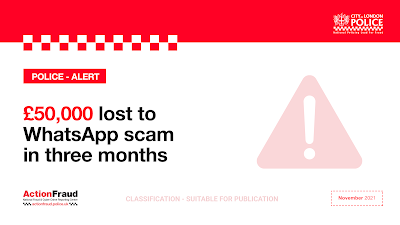Fraud: Fraud, is the most commonly experienced crime in the UK. Fraud costs the UK many billions of pounds every year. The impact of fraud and related offences such as market abuse and counterfeiting, can be devastating, ranging from unaffordable personal losses suffered by vulnerable victims to impacting the ability of organisations to stay in business.
The threat from fraud: Data breaches continue to be a key enabler of fraud. Personal and financial information obtained in a breach can be used to commit frauds affecting individuals, the private and public sectors alike. By harvesting personal and financial information through data breaches, criminals, are able to commit fraud and damage people, businesses, and services.
The most robust figures currently available from the Crime Survey of England and Wales reveal there were 3.4 million incidents of fraud in 2016-17. However, we think that fewer than 20 per cent of incidents of fraud, are actually reported so the true figure may be much higher. This means that the scale of fraud is very significant, but that under-reporting also hampers our understanding of the threat.
Much of the proceeds will be laundered within the UK or moved overseas. To launder the proceeds of fraud, organised crime groups often use ‘mule networks,’with bank accounts owned by witting and unwitting members of the public being used to obscure the source and nature of the funds.
Victims of fraud range across vulnerable individuals, major corporations, smaller businesses, as well as the public sector. The 2017 Annual Fraud Indicator estimates fraud losses to the UK at around £190 billion every year, with the private sector hit hardest losing around £140 billion. The public sector may be losing more than £40 billion and individuals around £7 billion. Businesses and high-net-worth individuals are now also being increasingly targeted due to their larger financial transactions and the greater potential profits for fraudsters. Aside from the financial costs, being a victim of fraud can cause serious reputational damage for businesses. Concern about adverse publicity probably contributes to under-reporting.
Fraud against individuals is typically targeted at elderly and other vulnerable people, for whom the consequences can often be devastating – psychologically as well as financially.
Fraud is increasingly being committed online. Where previously a fraud may have been committed by phone, post or in person, online access enables fraudsters to exploit victims remotely, often from another country. Some investment frauds, and most computer software service fraud, are known to be perpetrated from overseas.
Crime groups attack the UK public sector and government departments, such as the NHS, and billions are estimated to be lost to tax and benefit fraud each year.
Counterfeit and pirated goods: Counterfeit or pirated goods results in lost profits and taxes, and put consumers at risk from poor quality, unsafe goods. Counterfeiting is attractive to organised criminals because it brings high financial return from low investment.
The market for counterfeit currency has changed over the last ten years. High quality counterfeit notes can be produced very quickly by skilled printers using traditional offset lithographic methods. However, organised crime groups are also producing digitally printed fakes, using the latest technology and laser or inkjet printing techniques. Offset lithographic printing remains the more serious threat; notes are of a high quality and can be produced quickly. UK crime groups continue to counterfeit £20 notes, but the problem has reduced with the new £1 coins and the polymer £5 and £10 notes, which have increased security features.
Identity theft: Identity theft occurs when criminals access enough personal information about an individual to commit fraud. They use various techniques to steal these details, from outright theft and social engineering to harvesting data through cybercrime. With this information, criminals can impersonate the victim in order to access bank accounts, fraudulently claim benefits or obtain genuine documents in the victim’s name. Criminals are increasingly stealing identity data online, for example persuading individuals to disclose personal details and passwords through ‘phishing’ emails, and then trading the data.
Our response to fraud: We work with partners from across the public, private and third sectors to pursue serious and organised fraudsters, make individuals and businesses more resilient to fraud and other economic crimes, and, wherever possible, to return funds to victims. Our key partners include the Serious Fraud Office, City of London Police (lead police force for fraud), Metropolitan Police Service, Financial Conduct Authority, and the National Cyber Security Centre.The UK National Central Office for the Suppression of Counterfeit Currency and Protected Coins (UKNCO) provides advice and support to UK and international law enforcement about counterfeit currency.
What you can do to help: If you have been a victim of fraud, including fraudulent emails, do not open any attachments or click any links. Report all incidents of fraud to Action Fraud, the UK’s national fraud and cyber crime reporting centre, via their website or contact 0300 123 2040. In an emergency, call 999.It is important to protect details of your identity to prevent becoming a victim of identity theft. For further fraud prevention advice please visit Take Five, Cyber Aware and Action Fraud.Impersonation of NCA officers: Criminals may pretend to be from a legitimate organisation, in order to deceive. This includes the impersonation of NCA officers. If you’re in any doubt as to the identity of one of our officers please
call our Control Centre on 0370 496 7622
(available 24/7)
or go to this website:
https://www.nationalcrimeagency.gov.uk/what-we-do/crime-threats/fraud-and-economic-crime













